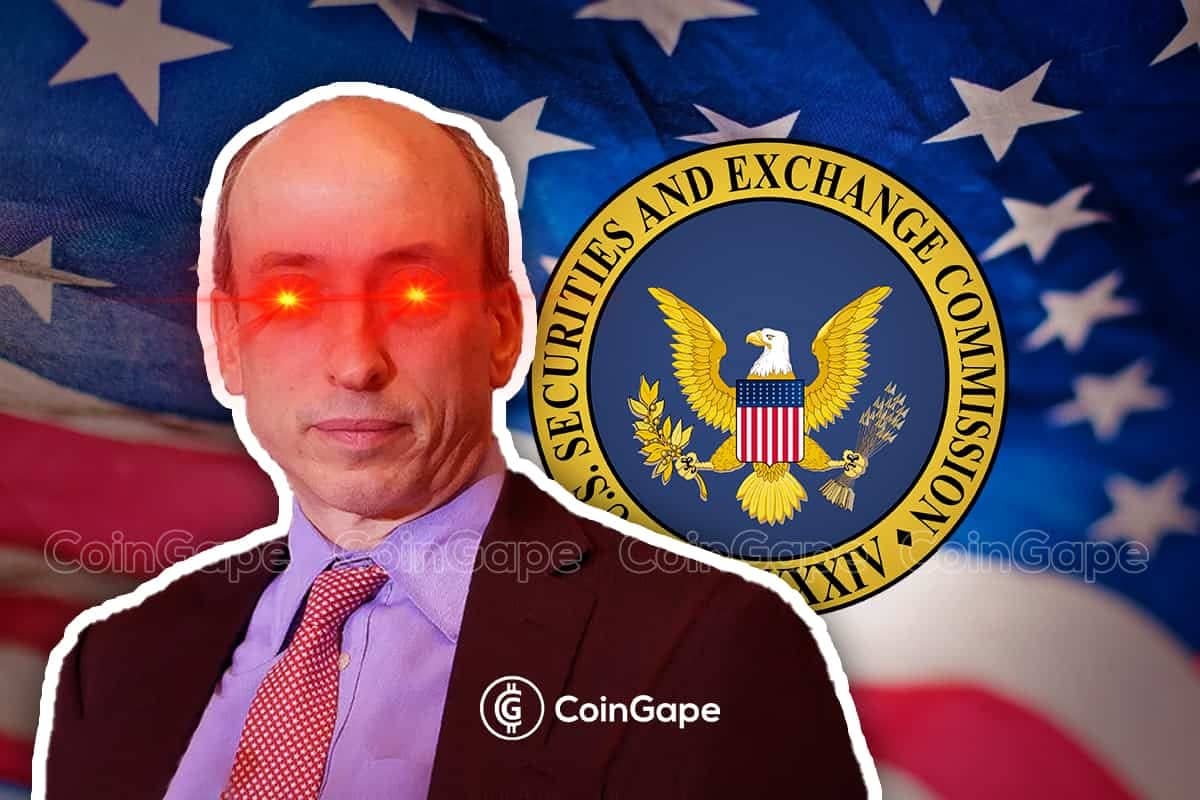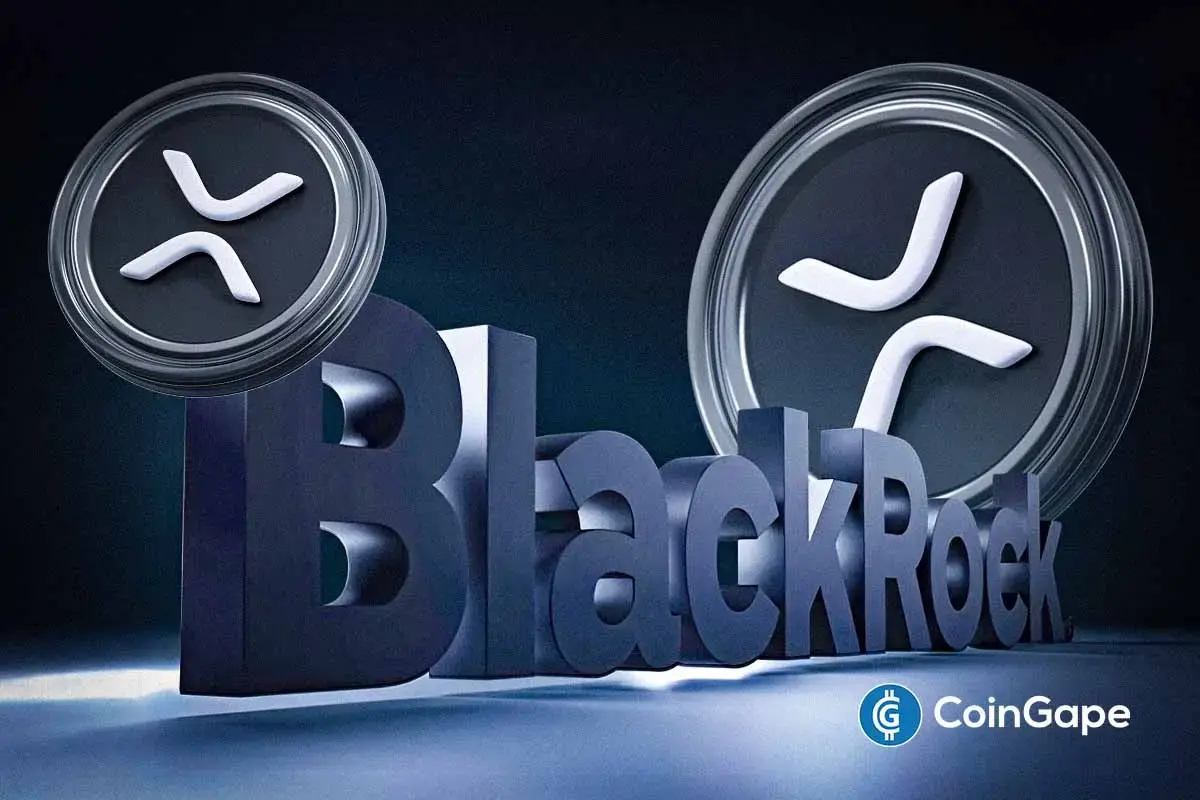Regulation
Gary Gensler Started The ‘Treasury Secretary’ Rumor Himself

Rumors swirling about SEC Chair Gary Gensler potentially becoming Treasury Secretary if Kamala Harris wins the 2024 presidential election have stirred significant debate within the crypto industry. However, Custodia Bank CEO Caitlin Long debunked these claims. Moreover, she believes that Gensler himself is the source of these rumors.
How ‘Gary Gensler As Treasury Secretary’ Rumors Started
The speculation originated from a Washington Reporter scoop by Matthew Foldi. In the reported, Foldi reiterated that Paradigm CLO Katie Biber had floated the notion of a “Gensler plan.” This plan would allegedly “ensure a Dem Commission majority in 2025 — forcing a newly-elected President Trump to oust him.”
It would position Gary Gensler to become an SEC commissioner once more. Moreover, it would enable President Biden to appoint a successor such as Caroline Crenshaw, known for her critical stance on the crypto industry. Hence, the SEC’s anti-crypto crusade would continue even if Gensler steps down.
The “Gensler plan” has generated a mix of intrigue and skepticism among industry figures and political commentators. The cause of the latest rumors is a Capitol Hill source familiar with SEC matters, as cited by Foldi. The source suggested that Gensler might agree to such a scenario if he were promised a role as Treasury Secretary by Kamala Harris if she wins.
Industry Leaders Debunk These Claims
These speculations didn’t sit well with the crypto industry that called for Harris to fire Gensler. Furthermore, Custodia Bank’s Long took to X and challenged the credibility of this rumor. She stated, “Multiple Dems contacted me to say the ‘Gensler as Treasury Secretary’ rumor is false.”
According to Long, a Democrat believes that Gensler himself is behind the rumor, either to create confusion or to manipulate perceptions. This assertion is supported by Sheila Warren, CEO of the Crypto Council, who echoed Long’s sentiments. Warren write on X, “I’ve heard this is false from multiple [Republicans] as well.” This bipartisan dismissal suggests that the rumor may lack substantive backing.
Rep. Tom Emmer had previously cautioned that Kamala Harris might choose Gensler as or Senator Elizabeth Warren for the Treasury Secretary position. Emmer criticized Gensler’s tenure at the SEC, stating:
“He’s been bringing lawsuits all over the place — and losing all over the place. That time’s past. Gary Gensler needs to move on. His career in government should be over.”
Bloomberg Senior ETF analyst Eric Balchunas spotlighted Emmer’s stance in a post on X. Moreover, Balchunas suggested, “It kinda sounds like he’s the source of the rumor.” This statement aligns with Custodia Bank CEO’s statement, solidifying the possibility of Gary Gensler starting the rumor himself.
Crypto Industry Reactions
Moreover, Ripple CTO David Schwartz took a more sarcastic tone in response to the rumors. On X, he wrote, “Good news, everyone! Sources say if Harris is elected, she will remove Gensler as chair of the SEC before his term is up!” Ripple recently reached the end of the legal tussle with the SEC with the former receiving a $125 million penalty.
Charles Hoskinson, founder of Cardano, weighed in with a critical perspective. He noted, “As I have repeatedly stated, team blue is not Crypto’s friend.” Hoskinson’s remark reflects broader skepticism within the crypto industry about the Democratic Party’s alignment with crypto interests.
Similarly, pro-XRP lawyer Bill Morgan condemned the idea, calling those who support Harris as a crypto ally “useful idiots.” He warned, “Imagine the damage he will do to crypto as Treasury Secretary. Where are the Democrats for Crypto crowd. Are they still having meetings with senior people from the Administration and being ‘listened’ to.”
Disclaimer: The presented content may include the personal opinion of the author and is subject to market condition. Do your market research before investing in cryptocurrencies. The author or the publication does not hold any responsibility for your personal financial loss.
Regulation
John Deaton Lays Out 5 To-Do List

John Deaton, a prominent crypto lawyer, has outlined a five-point plan for regulation by lawmakers in the United States. In his latest post on X, he calls for urgent action to establish clear rules that will support innovation, protect users, and bring stability to the crypto sector.
John Deaton on the Five Crypto Regulation Priorities
Deaton’s first recommendation is to pass a law on stablecoins. He believes this can increase demand for U.S. Treasuries and reduce the cost and delay in sending money across borders. This, he noted, will help the United States play a stronger role in global trade.
John Deaton wants the US. Congress should clearly define which tokens are securities and which are commodities. This will help decide whether the Securities and Exchange Commission (SEC) or the Commodity Futures Trading Commission (CFTC) should regulate them. Without such clarity, regulators may continue to clash over control, and projects may face confusion.
He also raised the need for crypto exchange regulation. Deaton wants strict rules to ensure customer funds are not mixed with company funds. He suggests that exchanges hold full reserves visible on the blockchain. This way, they can avoid high-risk activities like offering large amounts for lending or using customer funds elsewhere.
In addition, Deaton suggests easing the tax burden. He proposes removing the capital gains tax on small crypto payments and allowing people to pay federal taxes in cryptocurrency without facing more taxes.
Lastly, he urges Congress to revise or remove the Accredited Investor Rule. John Deaton believes the rule locks out too many people from early investment opportunities. He warns that lawmakers must act before the 2026 midterm elections to avoid delays caused by political changes.
Stablecoin Laws May Arrive Very Soon
It is important to add that Deaton’s views support ongoing developments in Congress. A bill known as the GENIUS Act is already being discussed.
It suggests that the Federal Reserve would manage large banks issuing stablecoins, while state bodies would handle smaller groups.
According to recent reports, the global market for stablecoins now exceeds $234 billion, raising hopes that new U.S. laws will soon follow.
As mentioned earlier by President Donald Trump, lawmakers are likely to fasttrack the stablecoin regulation. The current timeline is slated for Q2 this year.
SEC’s Shifting Position on Oversight
The SEC, which once took a hard line on crypto regulation, is now adjusting its stance
CoinGape noted earlier that the era of counterproductive oversight may be ending, as U.S. SEC and CFTC leaders have agreed to work together moving forward.
Historically, the SEC treated most tokens as securities, focusing on enforcement, while the CFTC took a softer approach to the markets. Recent laws like FIT21 aim to give the CFTC more control over decentralized assets.
With both regulatory oversight looking to create more cohesive plans to work, and the new leadership of Paul Atkins, the industry hopes to overcome challenges, reduce uncertainty, and foster greater clarity in crypto regulation.
Disclaimer: The presented content may include the personal opinion of the author and is subject to market condition. Do your market research before investing in cryptocurrencies. The author or the publication does not hold any responsibility for your personal financial loss.
Regulation
US SEC and Binance Agree To Pause Legal Proceedings for 60 More Days

The U.S. Securities and Exchange Commission (SEC) and Binance have requested a federal judge to extend the pause in their ongoing legal case for another 60 days.
This decision follows what both parties described as “productive discussions” and will provide more time for further deliberations.
US SEC and Binance Agree To Pause Legal Proceedings
The SEC initially sued Binance in 2023, accusing the exchange and its executives, including former CEO Changpeng Zhao, of violating federal securities laws, who is now the Strategic Advisor to Pakistan’s Crypto Council. The charges centred on Binance’s operation as an unlicensed clearing agency, broker, and exchange.
Additional allegations included the commingling of funds and manipulation of trading volume on Binance.US, its U.S. affiliate. These serious claims led to the ongoing litigation, which was paused multiple times to allow the parties to negotiate and clarify their positions.
Earlier this year, the SEC requested a 60-day pause in the case to allow for discussions around a new crypto task force to clarify how securities law might apply to digital assets. That pause was set to expire on April 14, 2025, but the SEC and Binance have now mutually agreed to extend it for an additional two months.
Reasons for the Continued Binance SEC Pause
The SEC, in its filing, explained that the discussions between both parties had focused on how the work of the newly formed crypto task force could impact the case. The task force, created to address regulatory issues in the cryptocurrency sector, may provide clearer guidance on how U.S. securities law applies to digital assets.
The SEC also pointed out that additional time was needed for authorization from the Commission before making any decisions or revisions in the scope of the case. Binance, for its part, agreed that an extension of the pause was in everyone’s best interest and would help to facilitate the ongoing discussions between the two sides.
“The continued pause is appropriate and in the interest of judicial economy,” the filing stated. Both the SEC and Binance have indicated that they aim to resolve the matter efficiently, without unnecessary delays or complications.
Crypto Task Force’s Role in the Case
The SEC’s newly established crypto task force may shape how digital asset transactions are treated under U.S. law. In a recent statement, Acting SEC Chair Mark Uyeda emphasized the importance of clear regulations for the cryptocurrency market and noted that the task force’s role is to create long-term solutions for regulating crypto trading.
Uyeda also suggested that a “time-limited, conditional exemptive relief framework” might be appropriate to allow innovation in blockchain technology while maintaining regulatory oversight. He encouraged market participants to contribute their views on where such exemptions might be necessary to foster industry growth.
The crypto task force’s efforts may influence how the SEC handles its case against Binance and its broader approach to regulating the digital asset space. The task force aims to ensure that U.S. law can adapt to the rapidly evolving technology behind cryptocurrencies while also protecting investors and ensuring market integrity.
Next Steps in the Legal Proceedings
With the case now paused for another 60 days, the SEC and Binance will continue their discussions and await further guidance from the crypto task force. The next update on the case’s status will come after the 60-day period.
As the pause continues, like the Ripple vs SEC case, stakeholders in the cryptocurrency industry will closely monitor the outcome of the discussions, as the case could set important precedents for future regulatory actions.
The SEC, as a result, has clarified that it is focused on ensuring compliance with securities laws, while Binance has stated its commitment to working within the framework of U.S. regulations.
Disclaimer: The presented content may include the personal opinion of the author and is subject to market condition. Do your market research before investing in cryptocurrencies. The author or the publication does not hold any responsibility for your personal financial loss.
Regulation
US Senators Reintroduce PROOF Act To Set Reserve Standards for Crypto Firms

As crypto regulation gains ground in the US under pro-crypto President Donald Trump, US Senators are taking further steps to strengthen oversight of digital asset firms. Senators Thom Tillis and John Hickenlooper reintroduced the Proving Reserves of Other Funds (PROOF) Act, which aims to create new standards for transparency and fund management in the cryptocurrency sector.
US Senators Reintroduce PROOF Act Bill
According to Eleanor Terrett, US Senators Tillis and Hickenlooper have renewed their push for the PROOF Act, which was first introduced in 2023. The bill responds to concerns raised by the collapse of FTX, where customer funds were reportedly mixed with the company’s own capital and redirected to affiliated firms.
The PROOF Act would prohibit the co-mingling of customer assets by digital asset custodians and exchanges. It sets requirements for monthly third-party reserve checks, which would ensure that firms hold enough reserves to back customer holdings.
Independent auditing firms would perform these checks, sending the results to the U.S. Department of the Treasury.
Mandatory Proof of Reserves Checks
Under the US Senator’s proposed law, all firms offering digital asset custody or exchange services must undergo monthly Proof of Reserves (PoR) inspections. These checks would verify that firms hold the assets they claim to possess on behalf of their clients.
PoR uses cryptographic tools like Merkle trees and zero-knowledge proofs to verify balances without revealing user data. To ensure transparency, the inspection reports would be made public through the Treasury Department. If a company fails to comply, it will face civil fines that increase with repeated violations.
Although some firms have previously voluntarily shared proof of reserves information, these practices have been inconsistent and often lacked third-party verification. The PROOF Act would create a standardized process across the industry.
Preventing Fund Mismanagement in the Crypto Industry Through The PROOF Act
The US Senators’ renewed effort to pass the PROOF Act follows the financial failure of several crypto companies, most notably FTX. Reports showed that FTX moved customer deposits to its sister firm, Alameda Research, without proper disclosure or reserves, contributing to a major loss of trust in the sector.
Lawmakers aim to reduce the risk of mismanaged or missing funds by introducing strict reserve reporting requirements. The bill, as a result, intends to give customers more confidence that their digital assets are safe and properly accounted for by crypto firms.
The legislation also encourages more responsible behaviour from digital asset institutions by requiring them to follow clearly defined standards. These standards subsequently support regulatory oversight and prevent future financial harm to customers.
SEC Leadership and Regulatory Developments
The reintroduction of the PROOF Act follows Paul Atkins’s appointment as the new Chair of the Securities and Exchange Commission (SEC) in the United States. The Senate endorsed Atkins with a 52 to 44 majority in acknowledging his position on precise crypto regulations.
As a result, the Division of Corporation Finance of the SEC published guidance for crypto issuers as a follow-up to Atkins’ confirmation. The guidance also involves disclosure concerning business models and financial statements and risks associated with digital assets that fall under the definition of securities.
Subsequently, Senator Cynthia Lummis, a pro-Bitcoin legislator, has corroborated the development while acknowledging optimism about the future under Atkins. She stated that from her conversation with Atkins, she became confident in his handling of digital asset regulation.
Disclaimer: The presented content may include the personal opinion of the author and is subject to market condition. Do your market research before investing in cryptocurrencies. The author or the publication does not hold any responsibility for your personal financial loss.
-

 Market17 hours ago
Market17 hours ago1 Year After Bitcoin Halving: What’s Different This Time?
-

 Ethereum23 hours ago
Ethereum23 hours agoEthereum Consolidates In Symmetrical Triangle: Expert Predicts 17% Price Move
-

 Market23 hours ago
Market23 hours agoToday’s $1K XRP Bag May Become Tomorrow’s Jackpot, Crypto Founder Says
-

 Market21 hours ago
Market21 hours agoMELANIA Crashes to All-Time Low Amid Insiders Continued Sales
-

 Market22 hours ago
Market22 hours agoCharles Schwab Plans Spot Crypto Trading Rollout in 2026
-

 Market18 hours ago
Market18 hours agoVOXEL Climbs 200% After Suspected Bitget Bot Glitch
-

 Ethereum22 hours ago
Ethereum22 hours agoEthereum Enters Historic Buy Zone As Price Dips Below Key Level – Insights
-

 Altcoin18 hours ago
Altcoin18 hours agoBinance Traders Go Big On Dogecoin—Majority Holding Long Positions























✓ Share: